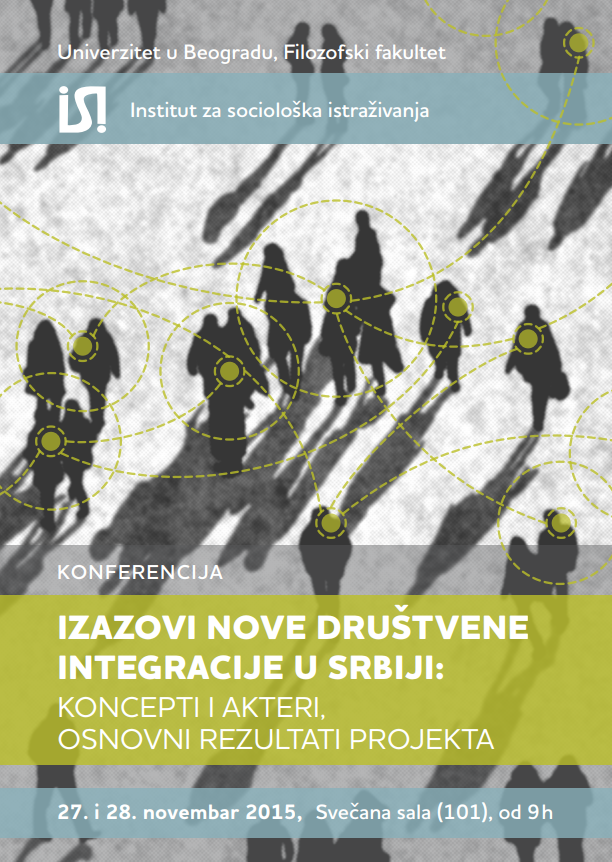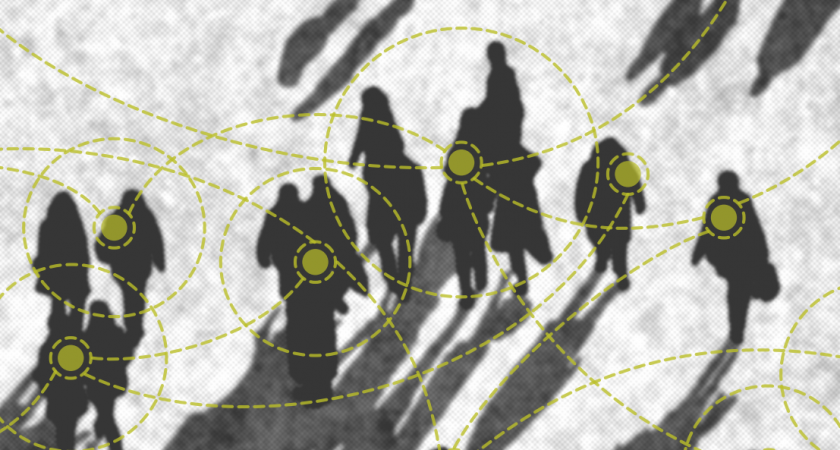The conference “Challenges of new social integration in Serbia: concepts and actors – basic results of the project” was held at the Faculty of Philosophy in Belgrade on November 27th and 28th, 2015. Its aim was to present the results of the three subprojects within the macroproject “Challenges of new social integration in Serbia: concepts and actors” funded by the Ministry of Education, Science and Technological Development. Over two days, the conference covered a total of 5 sessions.
 In the first session titled “Political elite in Serbia”, participants illuminated the key aspects of the social position of politicians in contemporary Serbia, paying special attention to their material status, recruitment patterns and changes in value orientations, as well as their ethnic identification.
In the first session titled “Political elite in Serbia”, participants illuminated the key aspects of the social position of politicians in contemporary Serbia, paying special attention to their material status, recruitment patterns and changes in value orientations, as well as their ethnic identification.
The second session “Territorial capital of medium-sized cities” explored problems of socio-spatial integration and development of such cities. The presenters offered interesting insights into many developmental aspects of these urban settings, examining relational and identity dimensions of territorial capital such as the construction of identity aimed at recognizing the city’s branding potentials and, above all, improving the quality of life in the city.
The third session “Aspects of (non)integration of young people in Serbian society” dealt with various relevant dimensions of social life the youth faces today. Among them, work patterns based on young people’s biographies, educational and labor transitions, as well as work strategies of young parents in Serbia were discussed. In addition, presenters considered the transition to parenthood by analyzing narratives of young mothers, with a special emphasis on parental support.
The fourth session provided a closer understanding of different aspects of parenting, family and politics from a feminist perspective. Under the title “A feminist approach to parenting policies”, besides exploring parents in the post-socialist extended family, issues of LGBT parenthood were also raised as a challenge for family sociology, along with the problem of how to establish dialogue between sociology and academic feminism in Serbia.
Finally, in the fifth session titled “Concepts and actors of social change”, the presenters focused on how the political elite in Serbia is formed and what the dominant forms of its value orientations are. The presenters thus provided insights into the parallel processes of the emergent pluralistic political elite, and its deprofessionalization. The presenters also scrutinized the action potential of the political elite, identified changes in value orientations and offered insights into the elite’s views on ethnicity. Also, within this session, attention was paid to both theoretical and methodological concerns, such as conducting observation in social science research, as well as the process of privatization, examined through the prism of class interests.
The conference was organized within the project “Challenges of new social integration in Serbia: concepts and actors”, funded by the Ministry of Education, Science and Technological Development of the Republic of Serbia.

